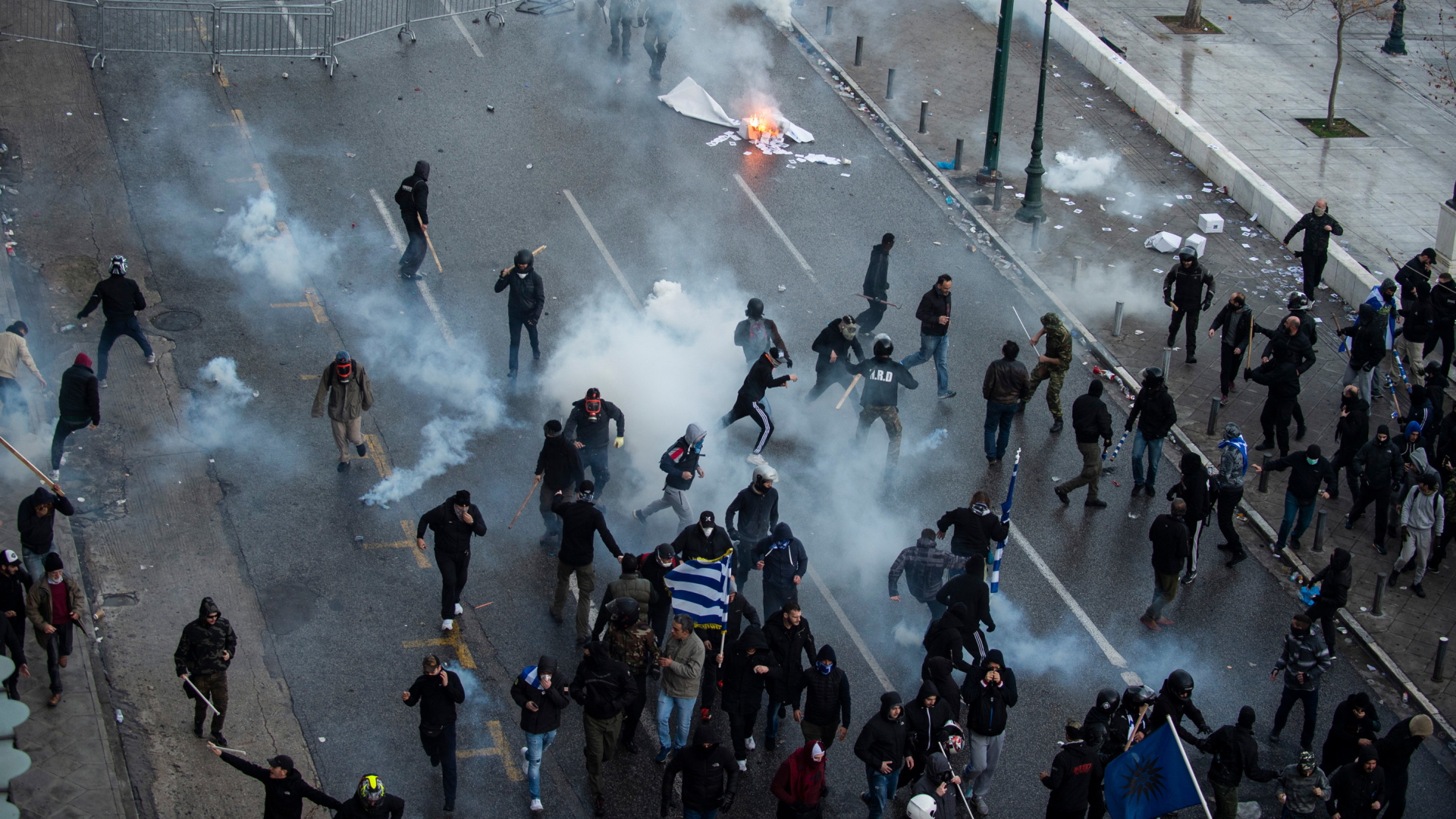
[ad_1]
Tens of thousands of people in Athens protested against an agreement with neighboring Macedonia to resolve the name dispute. There were revolts. Twenty-five policemen and two demonstrators were injured.
Tens of thousands of Greeks protested in Syntagma Square in Athens against a compromise to rename the neighboring country of Macedonia. The square in front of the Parliament in the capital was bathed by a sea of blue and white Greek flags. On a large banner the protesters campaigned for a referendum on the new name of the country of Macedonia.
The main organizers of the event included the "Committee for the struggle for Macedonian Hellenism". The neo-Nazi Golden Dawn party (Chryssi Avghi) had also mobilized. Groups and popes from the Greek Orthodox Church also participated.
The police have been deployed with 2,000 officers, drones and helicopters. The event was addressed. The police used tear gas at about 30 masked demonstrators who threw objects near the memorial of the Unknown Soldier, trying to break the barrier to parliament. Twenty-five policemen and two demonstrators were injured, according to the government and the rescuers.
Denounce the burden of controversy for decades
Some members of the conservative Nea Dimokratia were present, including former Prime Minister Antonis Samaras. He spoke of a "demonstration for democracy, for Greece, for our right". In the coming days, the agreement will be voted, according to which the northern neighbor should in the future be called Northern Macedonia.
The name dispute has influenced relations between Greece and its northern neighbor for nearly three decades. The conflict dates back to 1991, when the former Yugoslav republic declared its independence and chose Macedonia as its name.
However, from the point of view of Greece, the name Macedonia is part of the Greek national heritage and suggests a claim for the northern Greek province of the same name. Athens has blocked with its attitude the adhesion of Skopje with the European Union and the NATO military alliance.
Because of the latent conflict, Macedonia is still managed by the United Nations with the cumbersome name of the former Yugoslav Republic of Macedonia (FYROM). Last June, both countries had agreed on the name of Northern Macedonia. The Parliament of Skopje approved the agreement on January 11th.
The Greek parliament will have to decide in the coming days. Prime Minister Tsipras, who has just won the parliamentary vote of confidence last Wednesday, is confident that in the question of Macedonia there will also be a majority of at least 151 of the 300 deputies.
Source link